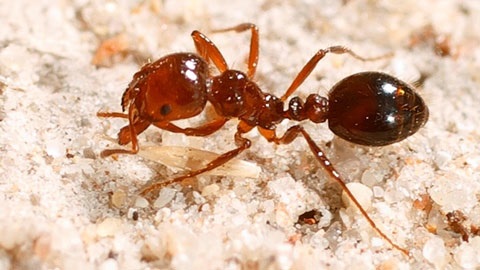Fire ant prevention and eradication

Fire ants are a dangerous imported pest. They can damage the environment and our outdoor lifestyle. The agriculture and tourism industries are also affected.
Materials that may carry fire ants, otherwise known as fire ant carriers include:
- clean or contaminated soil
- animal manure
- hay, straw, or sugarcane
- products and by-products of mining, quarrying, or excavation activities
- plants, their pots and by-products like mulch, sawdust, or compost.
National Fire Ant Eradication Program
Eradicating fire ants is a national priority. It is the only way to protect Australia from fire ants and their devastating impacts on our way of life. The National Fire Ant Eradication Program is working towards this.
The program provides an interactive map and up-to-date zoning information.
Queensland’s fire ant biosecurity zones align with the interstate plant quarantine zones. Anyone working with or moving organic materials should be familiar with these zones. You also need to be aware of your general biosecurity obligation.
Compliance requirements for fire ant carriers
You must follow the compliance requirements if you deal with fire ant carriers from suburbs within the biosecurity zones.
For instructions on moving organic material use the fire ant compliance advice tool.
You can also make anonymous reports of suspected illegal movement.
Requirements for suppliers of organic materials to Council
Council requires organic material suppliers to:
How you can help manage fire ants
There are a few things you can do to help manage fire ants, including: